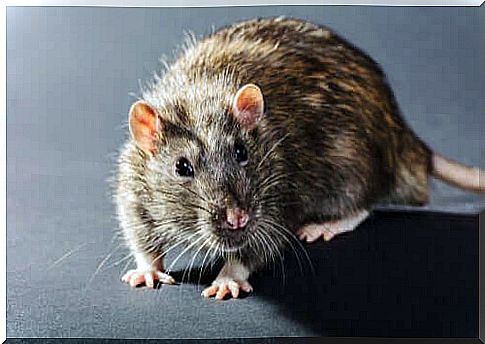Can Viruses Change Behavior?

Did you know that viruses can change the behavior of animals? It is true! Throughout evolution, viruses acquired different adaptive mechanisms to ensure their transmission to the host. One is to change the behavior of living organisms.
Many arthropods act as transmitting vectors: ticks, fleas, mosquitoes… Transmission occurs when the vector feeds on blood or other substances, such as sap (in the case of plants), infected by a pathogen that can be a bacteria, a parasite or a virus. Afterwards, they bite animals or humans, which act as the ultimate host.
In addition to affecting their vectors, several viruses cause infections in the central nervous system (CNS) of animals, causing disturbances in the host’s behavior.
Here we’ll discuss some examples of strategies viruses adopt to promote their next transmission.
Viruses that can alter the behavior of arthropod vectors
1. The tomato virus. This virus belongs to the Bunyaviridae family , which affects crops and alters the feeding behavior of its vector, thrips (an insect of the order Thysanoptera).
On the one hand, infected males feed more often than uninfected males. On the other hand, it stimulates salivation up to three times more. All of this leads to a greater probability of virus inoculation into tomatoes.

Other viruses in this viral family, La Crosse (causing La Crosse encephalitis) and Rift Valley Fever virus, cause an increased frequency of vector stings.
2. Dengue virus. Aedes aegypti is the flavivirus vector mosquito that causes diseases such as yellow fever, dengue and Zika, both in animals and in humans.
Females use their olfactory abilities to find the best place to lay eggs. The virus affects the central nervous system, altering its olfactory process and expanding the spatial band for oviposition and colonization of new niches. As a result, the virus can spread to other areas.
We see, therefore, that this ability to alter vector behavior is preserved in these viruses as an evolution and adaptation mechanism that improves their transmission.
Virus that can change behavior through the CNS
Disorders in the behavior of sick animals are related to changes in weight, temperature, taste preferences, food and water intake, and sleep patterns.
Viruses have been shown to play a direct role in these behavioral disturbances. For example:
- In neonatal mice, the Borna disease virus induces an off-flavour preference for salt.
- Canine distemper virus induces weight loss in dogs, while 5 to 10% of infected mice increase their weight by 300%.
- Changes in sleep pattern caused by influenza virus infection in mice and immunodeficiency virus infection in cats have been observed.
Viral infection can affect cognitive ability directly or indirectly
Direct pathways: include damage to neuronal cells due to replication of the virus itself or because its components cause cell lysis: the rabies virus and the herpes simplex virus.
Indirect pathways : the virus causes damage to different cells through neuroenvironmental disturbances or as a result of the host’s immune responses to the infection. Multiple sclerosis, an autoimmune disease, has been suggested to start with a persistent viral infection.
Viruses related to neurological disorders
Influenza A. Mice infected with this virus (flu virus) show changes in behavior related to anxiety and cognition. This is due to changes in gene expression that regulate synaptic functions in the amygdala, hypothalamus and cerebellum.

Rabies virus. As you may already know, this virus causes drastic changes in the behavior of infected hosts. A study published in Scientific Reports found that a region of the glycoprotein of this virus works by inhibiting neurotransmitter receptors present in the CNS.
Viruses that affect other organs
Hantavirus. The reservoirs of this virus are rodents of various species (in which it does not cause disease). Through saliva and feces, these animals can transmit it to people and cause hantavirus pulmonary syndrome.
There is a study carried out in Norway with rodents in which infected males exhibit a much more aggressive behavior than uninfected males.
The presence of this virus in the lungs, kidneys and testicles may be the reason for this change in behavior. In addition, the aggressiveness leads them to cause more bites, which can favor the spread of the virus through the wounds.
Viruses can change behavior
As we have seen, viral infection of the CNS can cause neurological abnormalities in addition to altering behavior. Therefore, it can be said that viruses – in a way – can change behavior.
A better understanding of the effects of chronic or persistent viral infection on the CNS will help us better understand how the molecular mechanisms related to behavioral disorders work, even in animals.









